- myFICO® Forums
- FICO Scoring and Other Credit Topics
- Understanding FICO® Scoring
- Re: -17 pts for under 10% util on CC
- Subscribe to RSS Feed
- Mark Topic as New
- Mark Topic as Read
- Float this Topic for Current User
- Bookmark
- Subscribe
- Mute
- Printer Friendly Page
-17 pts for under 10% util on CC
Is your credit card giving you the perks you want?
Browse credit cards from a variety of issuers to see if there's a better card for you.
- Mark as New
- Bookmark
- Subscribe
- Mute
- Subscribe to RSS Feed
- Permalink
- Report Inappropriate Content
Re: -17 pts for under 10% util on CC
@dunn2500 wrote:i have $1300 limit and used $175 and got nailed 17 pts from TU......i dont understand, i here keep small balance i hear no balance and it even posted today and my statement dates are 18th on one and 28th on the other.....i always spend under 30% total during month and keep balance low at due dates........kinda frustrating as there doesnt seem to be any rhyme or reason for these algorithms......ive had same scenario with auto purchases 3 times and all 3 times my pts changed in different ways........
a couple of friends and even my parents pay all their balances in full every month on due date and they all over 800......i may just take this approach as the other one doesnt seem to be working very well......i only have 2 CC and auto loan and all on time so cant imagine what else it would be......any help aprreciated
I totally understand how you feel. The Fico scoring system is definitely very flawed. And it makes me wonder if factors that are not revealed to the public are in play. Here is our scenario. My wife and I do everything together, we either co-apply or with some credit cards add the other as an authorized user. So our total debt, account balances, debt to income, and utilization are 100% the same. Yet my wife just got an 8 point boost from the new Amazon Prime card reporting and I got a 17 point hit for it, after already getting a 16 point hit since Chase double pulled Experian when I applied and I applied for the FNBO card. So she is at Ex8 800 and I dropped from 792 to 759. How does that make any sense unless there are other factors not known to us? I can see the initial hit for applying but not getting hammered another 17 points once the account reported when my wife got an 8 point boost out of it. Once the FNBO card reports and I receive another hit like that on Experian it actually would knock me out of the very good rating which would be totally ridiculous based on our perfect history in the last 10 years. Everything with these scores seems to be very random and even with equal circumstances seems to be very different from person to person. I can't count all the times both my wife and I took 11, 14, or more hits for nothing happening at all. No application, no added debt, no lower-income, no higher credit utilization. In fact when clicking on what changed it just said positives, like that our car, mortgage loan balance went down. It is definitely a game. Lenders trying to keep us down so we get less favorable rates and us trying to be up there for the best deals.


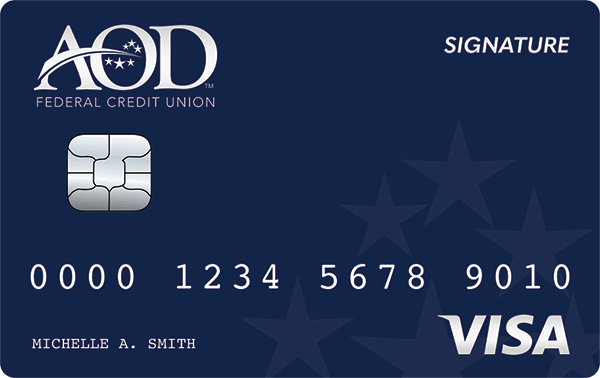

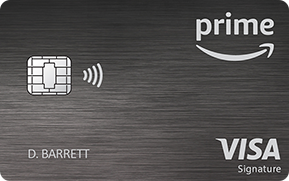


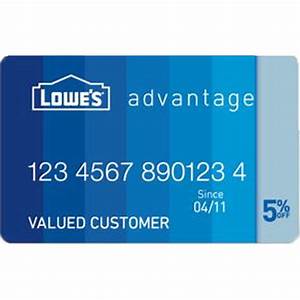






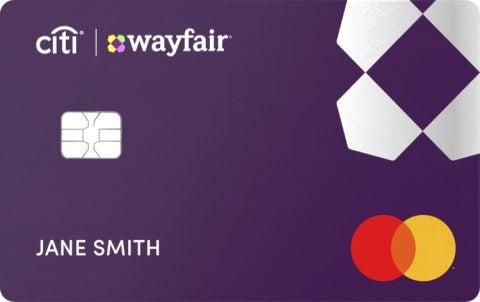
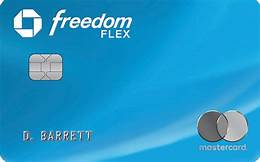


- Mark as New
- Bookmark
- Subscribe
- Mute
- Subscribe to RSS Feed
- Permalink
- Report Inappropriate Content
Re: -17 pts for under 10% util on CC
@Crowhelm wrote:
@dunn2500 wrote:i have $1300 limit and used $175 and got nailed 17 pts from TU......i dont understand, i here keep small balance i hear no balance and it even posted today and my statement dates are 18th on one and 28th on the other.....i always spend under 30% total during month and keep balance low at due dates........kinda frustrating as there doesnt seem to be any rhyme or reason for these algorithms......ive had same scenario with auto purchases 3 times and all 3 times my pts changed in different ways........
a couple of friends and even my parents pay all their balances in full every month on due date and they all over 800......i may just take this approach as the other one doesnt seem to be working very well......i only have 2 CC and auto loan and all on time so cant imagine what else it would be......any help aprreciated
I totally understand how you feel. The Fico scoring system is definitely very flawed. And it makes me wonder if factors that are not revealed to the public are in play. Here is our scenario. My wife and I do everything together, we either co-apply or with some credit cards add the other as an authorized user. So our total debt, account balances, debt to income, and utilization are 100% the same. Yet my wife just got an 8 point boost from the new Amazon Prime card reporting and I got a 17 point hit for it, after already getting a 16 point hit since Chase double pulled Experian when I applied and I applied for the FNBO card. So she is at Ex8 800 and I dropped from 792 to 759. How does that make any sense unless there are other factors not known to us? I can see the initial hit for applying but not getting hammered another 17 points once the account reported when my wife got an 8 point boost out of it. Once the FNBO card reports and I receive another hit like that on Experian it actually would knock me out of the very good rating which would be totally ridiculous based on our perfect history in the last 10 years. Everything with these scores seems to be very random and even with equal circumstances seems to be very different from person to person. I can't count all the times both my wife and I took 11, 14, or more hits for nothing happening at all. No application, no added debt, no lower-income, no higher credit utilization. In fact when clicking on what changed it just said positives, like that our car, mortgage loan balance went down. It is definitely a game. Lenders trying to keep us down so we get less favorable rates and us trying to be up there for the best deals.
I wouldn't consider the FICO scoring system to be severely flawed, however it is not very transparent to the consumer. FICO exists to predict the risk of lending money to an indivual. The majority of score changes are from a change in a profile that has been statistically proven to indicate lower or higher risk. The difficulty is that these statistics and metrics for calculating score are not shared with the public, if they were FICO wouldn't have a product to sell. Additionally, I would say the fact that banks still use FICO 5,4,2 models for mortgages places most consumers at a disadvantage.
In your case, I think the AU is making a bigger difference than you would think. And that is likely due to your thin and, I'm assuming, relatively young profile. The addition of multiple new accounts is certainly something that has statistics that show this behavior as risky. As accounts age, and as your whole profile ages, the risk associated with new accounts becomes less thus they create much smaller changes in your score. Thin and young profiles are, unfortunately, very susceptible to changes and even small differences can create significant point changes.
- Mark as New
- Bookmark
- Subscribe
- Mute
- Subscribe to RSS Feed
- Permalink
- Report Inappropriate Content
Re: -17 pts for under 10% util on CC
@Anonymous wrote:
@Crowhelm wrote:
@dunn2500 wrote:i have $1300 limit and used $175 and got nailed 17 pts from TU......i dont understand, i here keep small balance i hear no balance and it even posted today and my statement dates are 18th on one and 28th on the other.....i always spend under 30% total during month and keep balance low at due dates........kinda frustrating as there doesnt seem to be any rhyme or reason for these algorithms......ive had same scenario with auto purchases 3 times and all 3 times my pts changed in different ways........
a couple of friends and even my parents pay all their balances in full every month on due date and they all over 800......i may just take this approach as the other one doesnt seem to be working very well......i only have 2 CC and auto loan and all on time so cant imagine what else it would be......any help aprreciated
I totally understand how you feel. The Fico scoring system is definitely very flawed. And it makes me wonder if factors that are not revealed to the public are in play. Here is our scenario. My wife and I do everything together, we either co-apply or with some credit cards add the other as an authorized user. So our total debt, account balances, debt to income, and utilization are 100% the same. Yet my wife just got an 8 point boost from the new Amazon Prime card reporting and I got a 17 point hit for it, after already getting a 16 point hit since Chase double pulled Experian when I applied and I applied for the FNBO card. So she is at Ex8 800 and I dropped from 792 to 759. How does that make any sense unless there are other factors not known to us? I can see the initial hit for applying but not getting hammered another 17 points once the account reported when my wife got an 8 point boost out of it. Once the FNBO card reports and I receive another hit like that on Experian it actually would knock me out of the very good rating which would be totally ridiculous based on our perfect history in the last 10 years. Everything with these scores seems to be very random and even with equal circumstances seems to be very different from person to person. I can't count all the times both my wife and I took 11, 14, or more hits for nothing happening at all. No application, no added debt, no lower-income, no higher credit utilization. In fact when clicking on what changed it just said positives, like that our car, mortgage loan balance went down. It is definitely a game. Lenders trying to keep us down so we get less favorable rates and us trying to be up there for the best deals.
I wouldn't consider the FICO scoring system to be severely flawed, however it is not very transparent to the consumer. FICO exists to predict the risk of lending money to an indivual. The majority of score changes are from a change in a profile that has been statistically proven to indicate lower or higher risk. The difficulty is that these statistics and metrics for calculating score are not shared with the public, if they were FICO wouldn't have a product to sell. Additionally, I would say the fact that banks still use FICO 5,4,2 models for mortgages places most consumers at a disadvantage.
In your case, I think the AU is making a bigger difference than you would think. And that is likely due to your thin and, I'm assuming, relatively young profile. The addition of multiple new accounts is certainly something that has statistics that show this behavior as risky. As accounts age, and as your whole profile ages, the risk associated with new accounts becomes less thus they create much smaller changes in your score. Thin and young profiles are, unfortunately, very susceptible to changes and even small differences can create significant point changes.
Well if the AU thing is viewed so positive , which it shouldn't because an AU is taking zero risk or responbility but seemingly gets more rewarded then the person with the liability (mainly being responsible for paying the account) then I should get a boost when my wife's new Citi Wayfair account reports as with that one I will be the reported AU.
Like I said, I do understand the extra hit for applying, but that shouldn't be a 41 point swing. For example my wife only took a 5 point hit with Equifax for her Citi Wayfair card app.
Also I did not say SEVERELY flawed, just very flawed, (assuming you were refering to my comment and not just making an overall statement). Still a difference there :-). Everything else you said makes perfect sense and I would agree with all of it especially the consumer disadvantage with lenders not using the same Fico and that there are mortgage, auto loan and credit card ficos???? I mean they make a big deal about having a good mix of all types of accounts on the main Fico, why then separate them afterwards?


















- Mark as New
- Bookmark
- Subscribe
- Mute
- Subscribe to RSS Feed
- Permalink
- Report Inappropriate Content
Re: -17 pts for under 10% util on CC
@Crowhelm wrote:
@Anonymous wrote:
@Crowhelm wrote:
@dunn2500 wrote:i have $1300 limit and used $175 and got nailed 17 pts from TU......i dont understand, i here keep small balance i hear no balance and it even posted today and my statement dates are 18th on one and 28th on the other.....i always spend under 30% total during month and keep balance low at due dates........kinda frustrating as there doesnt seem to be any rhyme or reason for these algorithms......ive had same scenario with auto purchases 3 times and all 3 times my pts changed in different ways........
a couple of friends and even my parents pay all their balances in full every month on due date and they all over 800......i may just take this approach as the other one doesnt seem to be working very well......i only have 2 CC and auto loan and all on time so cant imagine what else it would be......any help aprreciated
I totally understand how you feel. The Fico scoring system is definitely very flawed. And it makes me wonder if factors that are not revealed to the public are in play. Here is our scenario. My wife and I do everything together, we either co-apply or with some credit cards add the other as an authorized user. So our total debt, account balances, debt to income, and utilization are 100% the same. Yet my wife just got an 8 point boost from the new Amazon Prime card reporting and I got a 17 point hit for it, after already getting a 16 point hit since Chase double pulled Experian when I applied and I applied for the FNBO card. So she is at Ex8 800 and I dropped from 792 to 759. How does that make any sense unless there are other factors not known to us? I can see the initial hit for applying but not getting hammered another 17 points once the account reported when my wife got an 8 point boost out of it. Once the FNBO card reports and I receive another hit like that on Experian it actually would knock me out of the very good rating which would be totally ridiculous based on our perfect history in the last 10 years. Everything with these scores seems to be very random and even with equal circumstances seems to be very different from person to person. I can't count all the times both my wife and I took 11, 14, or more hits for nothing happening at all. No application, no added debt, no lower-income, no higher credit utilization. In fact when clicking on what changed it just said positives, like that our car, mortgage loan balance went down. It is definitely a game. Lenders trying to keep us down so we get less favorable rates and us trying to be up there for the best deals.
I wouldn't consider the FICO scoring system to be severely flawed, however it is not very transparent to the consumer. FICO exists to predict the risk of lending money to an indivual. The majority of score changes are from a change in a profile that has been statistically proven to indicate lower or higher risk. The difficulty is that these statistics and metrics for calculating score are not shared with the public, if they were FICO wouldn't have a product to sell. Additionally, I would say the fact that banks still use FICO 5,4,2 models for mortgages places most consumers at a disadvantage.
In your case, I think the AU is making a bigger difference than you would think. And that is likely due to your thin and, I'm assuming, relatively young profile. The addition of multiple new accounts is certainly something that has statistics that show this behavior as risky. As accounts age, and as your whole profile ages, the risk associated with new accounts becomes less thus they create much smaller changes in your score. Thin and young profiles are, unfortunately, very susceptible to changes and even small differences can create significant point changes.
Well if the AU thing is viewed so positive , which it shouldn't because an AU is taking zero risk or responbility but seemingly gets more rewarded then the person with the liability (mainly being responsible for paying the account) then I should get a boost when my wife's new Citi Wayfair account reports as with that one I will be the reported AU.
Like I said, I do understand the extra hit for applying, but that shouldn't be a 41 point swing. For example my wife only took a 5 point hit with Equifax for her Citi Wayfair card app.
Also I did not say SEVERELY flawed, just very flawed, (assuming you were refering to my comment and not just making an overall statement). Still a difference there :-). Everything else you said makes perfect sense and I would agree with all of it especially the consumer disadvantage with lenders not using the same Fico and that there are mortgage, auto loan and credit card ficos???? I mean they make a big deal about having a good mix of all types of accounts on the main Fico, why then separate them afterwards?
The AU just makes it very difficult to calculate ages. There are anti-abuse algorithms that discount some AU accounts, so there isn't a 100% guarantee that an AU account influences your score as expected; even if it shows on your reports. Age of accounts and number of accounts are the 2 factors that most heavily contribute to profile stability. While a 41 point swing is pretty extreme, it also isn't that unexpected for a profile with young age and minimal accounts. When your score is at 800+ it is highly optimized. ANY negative changes (even on a more established profile) are going to have greater effects than the same change when the profile is not optimized.
Just making a general statement, no shade thrown your way at all! FICO has industry scores for Auto and Bankcard, they reprioritize some of the scoring metrics to generate scores more tailored for the auto industries and credit card industries. At a very high level breakdown, installment credit impacts auto scores more and revolving credit impacts bankcard scores more.
FICO doesn't create a "mortgage score", but due to quite a few factors (that I do not know enough about to exlain) FICO 5, 4, and 2 models are used to evaluate most, if not all, mortgage loans. Due to this, these scores are often referenced as mortgage scores. Certainly a lot of discussion on Equifax 5, Transunion 4, and Experian 2 and the use of these scores in evaluating mortgages can be found on this forum as well as across the internet.
- Mark as New
- Bookmark
- Subscribe
- Mute
- Subscribe to RSS Feed
- Permalink
- Report Inappropriate Content
Re: -17 pts for under 10% util on CC
@Anonymous
So far my wife just keeps gaining in her credit scores. Being the AU on the Amazon card gave her a 14 point gain on TU to 811, so now she is 800, 801, 811 when the only difference between our profile is that I applied for two cards and she applied for one. Doesn't make much sense to have these kind of point spreads just for that.


















- Mark as New
- Bookmark
- Subscribe
- Mute
- Subscribe to RSS Feed
- Permalink
- Report Inappropriate Content
Re: -17 pts for under 10% util on CC
@Crowhelm wrote:@Anonymous
So far my wife just keeps gaining in her credit scores. Being the AU on the Amazon card gave her a 14 point gain on TU to 811, so now she is 800, 801, 811 when the only difference between our profile is that I applied for two cards and she applied for one. Doesn't make much sense to have these kind of point spreads just for that.
A couple of thoughts that may give you some things to check into:
I believe you are getting a new account penalty as opposed to just the accounts effecting your aging metrics. To my knowledge, there isn't much data on this. But I think an AU account wouldn't be considered a "new acount" by the FICO system for the authorized user. Again, not much data on this but it is very likely there is a distinction that in turn effects scores.
Are you an AU on any of her cards? If so, does that card have a small balance. If there is no balance on that card you are likely receiving an AU AZ penalty. On my profile that costs me 12 points. I could imagine in would possibly cost even more points than that on a thinner and younger profile.
- Mark as New
- Bookmark
- Subscribe
- Mute
- Subscribe to RSS Feed
- Permalink
- Report Inappropriate Content
Re: -17 pts for under 10% util on CC
@Anonymous wrote:
@Crowhelm wrote:@Anonymous
So far my wife just keeps gaining in her credit scores. Being the AU on the Amazon card gave her a 14 point gain on TU to 811, so now she is 800, 801, 811 when the only difference between our profile is that I applied for two cards and she applied for one. Doesn't make much sense to have these kind of point spreads just for that.
A couple of thoughts that may give you some things to check into:
I believe you are getting a new account penalty as opposed to just the accounts effecting your aging metrics. To my knowledge, there isn't much data on this. But I think an AU account wouldn't be considered a "new acount" by the FICO system for the authorized user. Again, not much data on this but it is very likely there is a distinction that in turn effects scores.
Are you an AU on any of her cards? If so, does that card have a small balance. If there is no balance on that card you are likely receiving an AU AZ penalty. On my profile that costs me 12 points. I could imagine in would possibly cost even more points than that on a thinner and younger profile.
So far only the Amazon card reported. So my damage and her gain is from that. BECU was a joint app, so no AU there. Amazon, FBNO are my cards, she is AU. Citi Wayfair is hers and I am the AU.


















- Mark as New
- Bookmark
- Subscribe
- Mute
- Subscribe to RSS Feed
- Permalink
- Report Inappropriate Content
Re: -17 pts for under 10% util on CC
While I'm just speculating here I would assume even though both of you are on all cards either by joint app or AU, that the algorithm isn't evenly weighting both scenarios.
I'm still learning but you would prob get more info if you shared full DPs on both of your profiles.
I feel your pain in the large point swings on a thin profile. In December I was TU8 828. I opened 3x cards in January (only had 2 prior) and dropped to 753. No change in utilization or number of accounts with a balance. I have since bounced back a little bit to 776isn but it's been slow and frustrating.
- Mark as New
- Bookmark
- Subscribe
- Mute
- Subscribe to RSS Feed
- Permalink
- Report Inappropriate Content
Re: -17 pts for under 10% util on CC
@Eyepinpools wrote:While I'm just speculating here I would assume even though both of you are on all cards either by joint app or AU, that the algorithm isn't evenly weighting both scenarios.
I'm still learning but you would prob get more info if you shared full DPs on both of your profiles.
I feel your pain in the large point swings on a thin profile. In December I was TU8 828. I opened 3x cards in January (only had 2 prior) and dropped to 753. No change in utilization or number of accounts with a balance. I have since bounced back a little bit to 776isn but it's been slow and frustrating.
What are full DP's? Still learning myself..lol


















- Mark as New
- Bookmark
- Subscribe
- Mute
- Subscribe to RSS Feed
- Permalink
- Report Inappropriate Content
Re: -17 pts for under 10% util on CC
@dunn2500 wrote:.ive had same scenario with auto purchases 3 times and all 3 times my pts changed in different ways........
a couple of friends and even my parents pay all their balances in full every month on due date and they all over 800......i may just take this approach as the other one doesnt seem to be working very well......i only have 2 CC and auto loan and all on time so cant imagine what else it would be......any help aprreciated
When your score improves, make it a point to get at least one and preferably a few more credit cards. Since most cards give you flexibility on due dates, that will make it easier to spread out your bills, easier to do the AZEO gig, and while you will pay a price for AAOA, eventually having five cards will turn in your favor. My suggestions would include the Discover Cashback and/or PayPal Cashback(Synchrony) card. Discover is great for the first year(they double all your CB for a year. It also allows you 5% CB on a quarterly rotating basis. I know Synchrony is not popular on this forum, but they've been great to work with from CLIs to hacked cards. I got both cards with barely good credit (660-680) and they've been great over the last four years. The benefits I received from having consistenly low CU, never needing to have one acct report 10%+, and the CB far exceeded the relatively small price I had to pay for AAOA for s few years was worth it.














